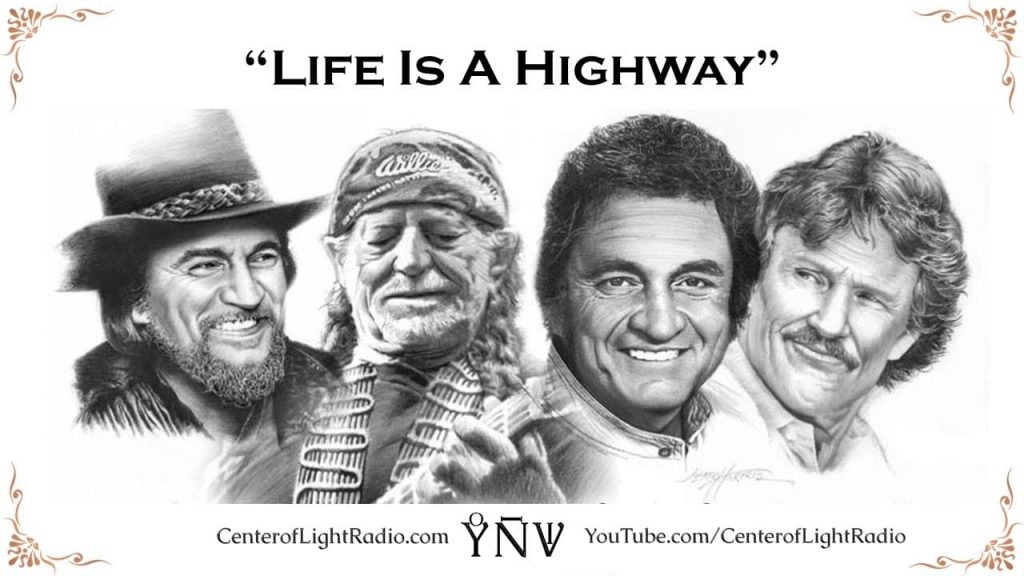
The Highwaymen’s Soulful Rendition of “City of New Orleans” – A Tribute to American Life (Live at Nassau Coliseum, 1990)
In 1990, The Highwaymen, the legendary country supergroup made up of Johnny Cash, Willie Nelson, Waylon Jennings, and Kris Kristofferson, delivered an unforgettable live performance of “City of New Orleans” at the Nassau Coliseum as part of their American Outlaws tour. This rendition of the song captured the essence of the American spirit, blending folk, country, and heartfelt storytelling into a moving tribute to the working-class life and the disappearing Americana of the railroad era.
Originally written by Steve Goodman and made famous by Arlo Guthrie in 1972, “City of New Orleans” tells the story of a train journey across the heartland of America. The song paints vivid imagery of the sights and sounds encountered along the Illinois Central Railroad route, with the train itself becoming a symbol of the country’s soul and heritage. In the hands of The Highwaymen, the song takes on a new depth, each member bringing their own unique style and perspective to the performance.
Willie Nelson’s smooth and soothing voice leads the charge in this live version, bringing a sense of warmth and nostalgia to the song’s vivid description of the train journey: “Riding on the City of New Orleans, Illinois Central, Monday morning rail.” His delivery feels intimate, as though he’s recounting the experience to close friends gathered around a campfire. Johnny Cash’s unmistakable deep, gravelly tone adds a sense of gravitas, making the song feel like a tribute not just to the train but to a vanishing way of life in America. When Waylon Jennings and Kris Kristofferson join in, their voices blend seamlessly, creating a harmony that’s rich with emotion and authenticity.
The Highwaymen’s version of “City of New Orleans” is not just a song about a train—it’s a celebration of the people and the land it traverses. The lyrics are filled with images of conductors, engineers, and passengers, all part of the fabric of everyday American life. The mention of “freight yards full of old black men” and “graveyards of rusted automobiles” evokes a sense of loss and the passage of time, while the refrain “Good morning, America, how are you?” serves as both a greeting and a poignant reminder of the country’s changing landscape.
Performed live, the song takes on a new energy, with the crowd at Nassau Coliseum fully immersed in the experience. The band’s instrumental backing, featuring acoustic guitars and subtle percussion, provides a steady, rhythmic foundation, allowing the lyrics and the vocal harmonies to shine. The simplicity of the arrangement, much like the original, reflects the straightforward, honest storytelling at the heart of the song.
While the song didn’t originate with The Highwaymen, their rendition feels deeply personal, as though each member is paying tribute to the America they knew and loved—an America that was slowly fading away. Johnny Cash, in particular, had long been associated with themes of working-class struggles and the plight of the common man, and his presence in this performance lends the song a deeper resonance.
“City of New Orleans” was not a chart-topping hit for The Highwaymen, but it became a fan favorite during their live shows, and this performance from American Outlaws: Live at Nassau Coliseum captures the magic of four country legends coming together to share a timeless story. The song’s themes of journey, change, and the enduring spirit of America resonated with audiences in 1990, just as they had when it was first released nearly two decades earlier.
Today, The Highwaymen’s performance of “City of New Orleans” remains a cherished moment in country music history. It serves as a reminder of the power of collaboration and the ability of great musicians to breathe new life into an already iconic song. Through their voices, the song becomes more than just a tale of a train ride—it’s a tribute to the enduring spirit of America and the people who keep it moving forward, even as the world around them changes.